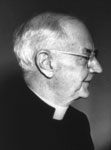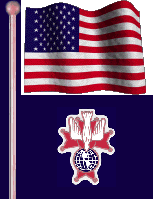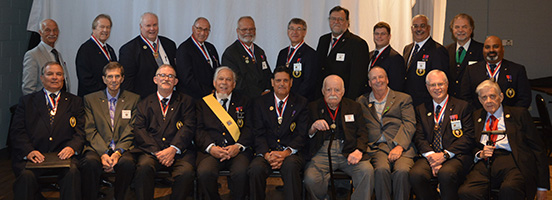|
Flag Day June 14th
marks the anniversary
of the words
“Under God”
being added to
the Pledge of
Allegiance.
Click
HERE for
more
information.
|
|
|
|

|
Rules for
Display of the
American Flag |
-
The flagpole should
be illuminated at
all times, either by
sunlight or an
appropriate light
source at night.
- The flag should
be flown in fair
weather, unless the
flag is designed for
inclement weather
use.
- The flag should
never be dipped to
any person or thing.
It is flown upside
down only as a
distress signal.
- The flag should
not be used for any
decoration in
general. Bunting of
blue, white and red
stripes is available
for this purpose.
The blue stripe of
the bunting should
be on the top.
- The flag should
never be used for
any advertising
purpose. It should
not be embroidered,
printed or otherwise
impressed on such
articles as
cushions,
handkerchiefs,
napkins, boxes, or
anything intended to
be discarded after
temporary use.
Advertising signs
should not be
attached to the
staff or halyard.
- The flag should
not be used as part
of a costume or
athletic uniform,
except that a flag
patch may be used on
the uniform of
military personnel,
fireman, policeman
and members of
patriotic
organizations.
- The flag should
never have any mark,
insignia, letter,
word, number,
figure, or drawing
of any kind placed
on it, or attached
to it.
- The flag should
never be used for
receiving, holding,
carrying, or
delivering anything.
|
Over
the Middle of
the Street |
|
It should be
suspended
vertically with
the union to the
north in an east
and west street
or to the east
in a north and
south street.
|
| |
|
|
|
With
Another Flag
Against a Wall
from Crossed
Staffs |
|
Should be on the
right, the
flag's own right
which is the
viewer's left,
and its staff
should be in
front of the
staff of the
other flag. |
| |
| |
|
Flown
at Half-staff |
|
Should be first
hoisted to the
peak for an
instant and then
lowered to the
half-staff
position. The
flag should be
again raised to
the peak before
it is lowered
for the day. By
"half-staff" is
meant lowering
the flag to
one-half the
distance between
the top and
bottom of the
staff. Crepe
streamers may be
affixed to spear
heads or
flagstaffs in a
parade only by
order of the
President of the
United States.
|
| |
| |
|
Flown
on the Same
Halyard with
Non-Nation Flags |
|
The American
Flag should
always be at the
peak. When the
flags are flown
from adjacent
staffs, the flag
of the United
States should be
hoisted first
and lowered
last. No such
flag or pennant
may be placed
above the flag
of the United
States or to the
right of the
flag of the
United States. |
| |
| |
|
Suspended
Over a Sidewalk |
|
The flag may be
suspended from a
rope extending
from a house to
a pole at the
edge of the
sidewalk, the
flag should be
hoisted out,
union first,
from the
building.
|
| |
| |
|
From a
Staff Projecting
Horizontally or
at an Angle |
|
The flag may be
projected from
the window sill,
balcony, or
front of a
building, with
the union of the
flag placed at
the peak of the
staff unless the
flag is at
half-staff.
|
| |
| |
|
In a
Parade with
Other Flags |
|
The flag, when
carried in a
procession with
another flag, or
flags, should be
either on the
marching right;
that is, the
flag's own
right, or, if
there is a line
of other flags,
in front of the
center of that
line. |
| |
| |
|
With
Non-National
Flags |
|
The flag of the
United States of
America should
be at the center
and at the
highest point of
the group when a
number of flags
of States or
localities or
pennants of
societies are
grouped and
displayed from
staffs.
|
| |
| |
|
With
Other National
Flags |
|
When flags of
two or more
nations are
displayed, they
are to be flown
from separate
staffs of the
same height. The
flags should be
of approximately
equal size.
International
usage forbids
the display of
the flag of one
nation above
that of another
nation in time
of peace.
|
| |
| |
|
From a
Staff in a
Church or Public
Auditorium on a
Podium |
|
The flag of the
United States of
America should
hold the
position of
superior
prominence, in
advance of the
audience, and in
the position of
honor at the
clergyman's or
speaker's right
as he faces the
audience. Any
other flag so
displayed should
be placed on the
left of the
clergyman or
speaker (to the
right of the
audience).
|
| |
| |
|
From a
Staff in a
Church or Public
Auditorium off
the Podium |
|
Custom and not
the flag code
hold that the
flag of the
United States of
America should
hold the
position of
superior
prominence as
part of the
audience, in the
position of
honor at the
audience's
right.
|
| |
| |
|
Used to
Cover a Casket |
|
It should be so
placed that the
union is at the
head and over
the left
shoulder. The
flag should not
be lowered into
the grave or
allowed to touch
the ground. |
| |
| |
|
Other
than being Flown
from a Staff |
|
The flag should
be displayed
flat, whether
indoors or out.
When displayed
either
horizontally or
vertically
against a wall,
the union should
be uppermost and
to the flag's
own right, that
is, to the
observer's left.
When displayed
in a window it
should be
displayed in the
same way, that
is with the
union or blue
field to the
left of the
observer in the
street. When
festoons,
rosettes or
drapings are
desired, bunting
of blue, white
and red should
be used, but
never the flag. |
|
|
|









 Login Status
Login Status 